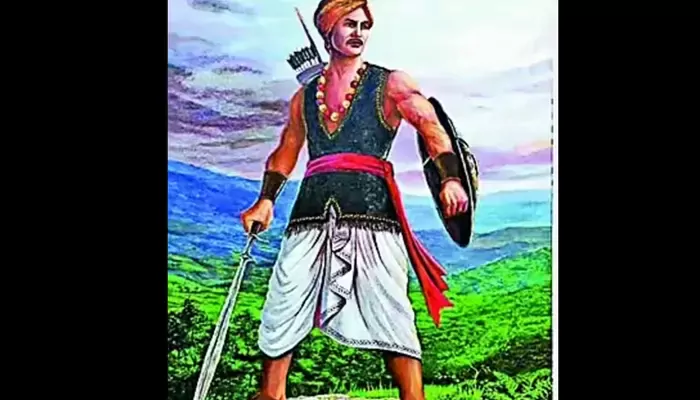
How his defiance delayed British plans in the Northeast.
In the early 19th century, when the British tightened their grip across India, one unlikely voice rose from the misty Khasi Hills. It didn’t belong to a king with a crown of gold, but to a tribal chief with a council of elders and a fierce sense of freedom. Tirot Singh, leader of the Nongkhlaw state, stood up to the British with nothing more than swords, spears, and the strength of his people. His revolt may not be the most famous, but it was one of the earliest acts of defiance that slowed down the British march into Northeast India.
Tirot Singh belonged to the Khasi tribe, which was known for its independent spirit and deep connection to their land. As chief of Nongkhlaw, he ruled not by decree but in consultation with his durbar—a council of elders. When the British proposed building a strategic road through the Khasi Hills to connect Assam with Bengal after the First Anglo-Burmese War (1824–26), Tirot Singh initially agreed. The British had promised mutual benefit and no interference in tribal autonomy. But colonial promises were fragile.

Soon after construction began, it became clear that British plans were far more invasive than first claimed. They began extending their influence, stationing troops, and disregarding the sovereignty of local chiefs. Tensions rose when a boundary dispute over the duars (passes) between Tirot Singh and a rival chief was settled by British force, undermining Tirot Singh’s authority.
The betrayal struck deep. In 1829, after failed negotiations and rising mistrust, Tirot Singh demanded that the British vacate Khasi territory. When they refused, he chose the path of resistance.
On April 4, 1829, Tirot Singh launched a surprise attack on the British garrison at Nongkhlaw, killing two officers. This marked the beginning of the Anglo-Khasi War. With no firearms, the Khasi warriors relied on traditional weapons—spears, bows, and swords. Their strength was not in firepower but in determination and terrain knowledge.
The British, armed with rifles and reinforcements, responded with force. But the Khasis adapted. They took to the hills, launching guerrilla raids, ambushes, and night attacks. For nearly four years, they made British advancement slow and costly.
Tirot Singh’s resistance took a toll. Wounded in one encounter, he hid in the deep limestone caves near present-day Mawsmai. Frustrated by his elusive tactics, British forces offered rewards for his capture. In 1833, a local informer betrayed him. He was arrested and taken to Dhaka (then part of the Bengal Presidency), where he was imprisoned.
On July 17, 1835, Tirot Singh died in captivity. He never saw his homeland again.
Tirot Singh’s defiance did not permanently stop British expansion, but it did significantly delay their northeast campaign. The road through the Khasi Hills, vital for military and trade movement, had to wait. The British were forced to reassess their policies in the region. His rebellion also sent a message: the tribes of the hills would not bow easily.
In a time when many regions were still coming to terms with colonial rule, Tirot Singh chose resistance.

Tirot Singh is a symbol of pride in Meghalaya. His courage is remembered every year on July 17 as U Tirot Sing Day. Schools and communities pay tribute; his story is shared as part of Meghalaya’s living heritage. Statues in Shillong and cultural programs ensure his legacy remains in public memory.
But beyond regional reverence, Tirot Singh’s story deserves a national spotlight. He was one of India’s earliest freedom fighters who fought with dignity, with his people, and with his land.